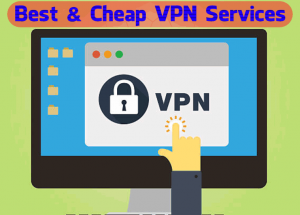In a digital world that prioritizes privacy, security, and flexibility, Virtual Private Networks (VPNs) have become an essential tool for protecting online activities. While many people set up VPNs directly on their computers or smartphones, fewer realize that configuring a VPN at the router level can secure every device connected to their network. But before you decide, it’s crucial to weigh both the benefits and challenges of enabling a VPN on your router.
This guide breaks down the pros and cons of router-based VPNs to help you make an informed decision that best suits your internet needs.
Quick Links
What is a Router-Level VPN?
A router-level VPN is a VPN configuration that is installed directly on your internet router instead of on individual devices. Once the VPN is enabled on the router, every device connected to the network automatically benefits from the encrypted VPN connection. This setup can include smartphones, tablets, computers, gaming consoles, and smart home devices, such as IoT systems and smart TVs, without needing a separate VPN app or setup for each.
Installing a VPN at the router level has its advantages, like enhanced security and coverage, but it also comes with unique considerations, such as compatibility issues and limited control for individual devices. Let’s explore these pros and cons in more depth.
Pros of Enabling VPN on Your Router
Image Credit: Pixabay.
Protection for All Connected Devices
When you configure a VPN on your router, every device that connects to it benefits from the VPN’s encryption. This means that even devices that don’t typically support VPNs—such as gaming consoles, smart TVs, and certain IoT devices—are protected from online threats. This level of security is ideal for households and small offices with multiple users and a mix of devices, as it secures all connections without requiring individual apps.
Why is This Important? A router-based VPN shields your entire network, making it harder for hackers, advertisers, and malicious entities to track your online activities or target specific devices. It’s an effective way to add an extra layer of security to your smart home or office environment without the hassle of installing VPNs on each device.
Convenience and Ease of Use
Managing a VPN at the router level streamlines your network’s security management. With a single setup, you can secure all devices without having to configure or activate VPNs individually. This centralized approach can be especially helpful for families, where younger or elderly members may not be familiar with VPN apps, or for anyone who wants a “set-it-and-forget-it” solution.
Simplified Management for All Devices Once your router VPN is active, you won’t need to manually connect or disconnect each time you want to switch to a protected connection. As a result, there’s no need to worry about forgetting to turn on your VPN, reducing the chance of security lapses.
No More Connection Limits
Many VPN services limit the number of devices you can connect simultaneously under one subscription. By setting up a VPN at the router level, all devices on the network can connect without exceeding these limitations since the VPN counts as a single connection. This benefit helps save money by avoiding higher-tier plans that support additional device connections.
Why Connection Limits Matter For families or shared office spaces where multiple devices connect daily, this setup offers a hassle-free solution that bypasses connection restrictions. Without device caps, your network remains secure without impacting subscription costs.
Improved Privacy and Security
A VPN-enabled router provides continuous encryption for all internet traffic across your network. Unlike individual device VPNs, where users might accidentally browse without encryption, a router VPN ensures that all connected devices stay protected, reducing the risk of security lapses.
Consistent Encryption and Privacy With a router-level VPN, you can rest assured that your network enjoys consistent encryption, keeping browsing activities, personal information, and other sensitive data secure from snooping. The seamless, uninterrupted connection also removes the worry of connection drops or accidentally forgetting to activate your VPN.
Cons of Enabling VPN on Your Router

Image Credit: Pixabay.
Complex Setup Process
Configuring a VPN on a router is often more complex than simply downloading and installing an app on your device. Depending on your router model, you may need to install custom firmware, such as DD-WRT or Tomato, to support the VPN. For non-tech-savvy users, this setup can feel intimidating, and improper setup can disrupt your router’s functionality.
Challenges for Non-Experts Unlike device-based VPN apps that offer user-friendly interfaces, configuring router firmware can be a daunting task. Additionally, installing custom firmware voids warranties on some routers, making it crucial to follow setup instructions precisely to avoid potential issues.
Reduced Internet Speed
Routing all internet traffic through a VPN can reduce internet speed, as the VPN requires extra processing power. When a VPN is running directly on your router, every connected device experiences the same speed reduction, regardless of whether it needs a VPN for its activities.
Performance Impact This slowdown is particularly noticeable with routers that lack the processing power to handle VPN encryption efficiently. Tasks such as streaming, gaming, or video conferencing may suffer if your router struggles with the added workload. While some higher-end routers are optimized for VPNs, older or basic models may significantly impact your internet speed.
Limited Customization
Device-based VPN apps provide customizable settings, allowing you to select specific servers, protocols, or split tunneling features. However, a router-based VPN generally offers less control. Changing VPN locations or disconnecting individual devices may require logging into your router’s control panel, making it less convenient.
Loss of Fine-Tuned Control The inability to control VPN settings for each device can be limiting, especially for users who only need VPN coverage on specific devices. Router-level VPNs are a one-size-fits-all solution, which may not suit users who want selective privacy.
Not All Routers Support VPNs
Not all routers come with built-in support for VPNs. Basic routers may require custom firmware to enable VPN functionality, which can be challenging and time-consuming to install. For those with incompatible routers, the only options are purchasing a VPN-compatible router or forgoing the VPN at the router level entirely.
Additional Costs and Incompatibility Issues Upgrading to a VPN-compatible router can be costly, and custom firmware installation doesn’t guarantee full compatibility or functionality. Users should research compatibility before attempting this setup to avoid potential technical hurdles and financial investments.
Should You Set Up a VPN on Your Router?
Deciding whether to set up a VPN on your router depends on your specific security needs, internet speed requirements, and technical abilities. For users with a robust, VPN-compatible router and high-speed internet, the benefits of a router-level VPN may outweigh the disadvantages. This setup is especially valuable for securing all devices without needing individual VPN installations.
However, if your router is incompatible, outdated, or struggles to maintain fast speeds under additional processing loads, a router VPN might not be the ideal choice. Alternatively, using individual VPN apps on select devices could offer the flexibility and performance needed without sacrificing speed or incurring additional costs.
Conclusion
Enabling a VPN on your router can enhance privacy, security, and convenience for a home or office with multiple devices. It eliminates the need to install VPN apps across devices and allows you to secure non-VPN-compatible devices. However, the complexity of setup, potential impact on internet speeds, and limited customization options mean it’s not the right fit for everyone.
Consider your router’s capabilities, your technical comfort level, and whether you’re willing to sacrifice a bit of control for the convenience of a network-wide VPN. If these align with your goals, a router-based VPN can be a powerful tool for safeguarding your online activities.
When you purchase through links on our site, we may earn an affiliate commission. Read our Affiliate Policy.





